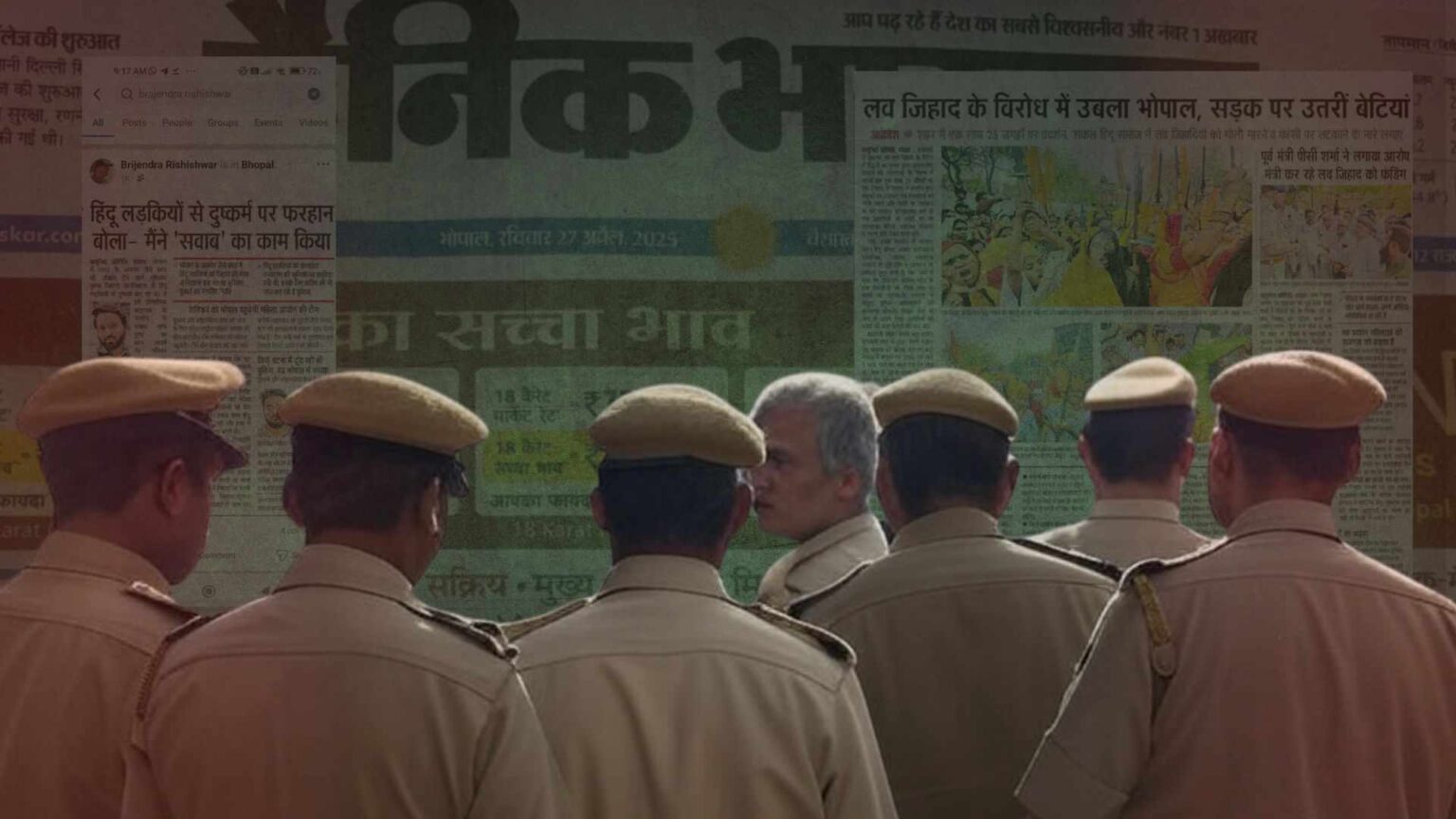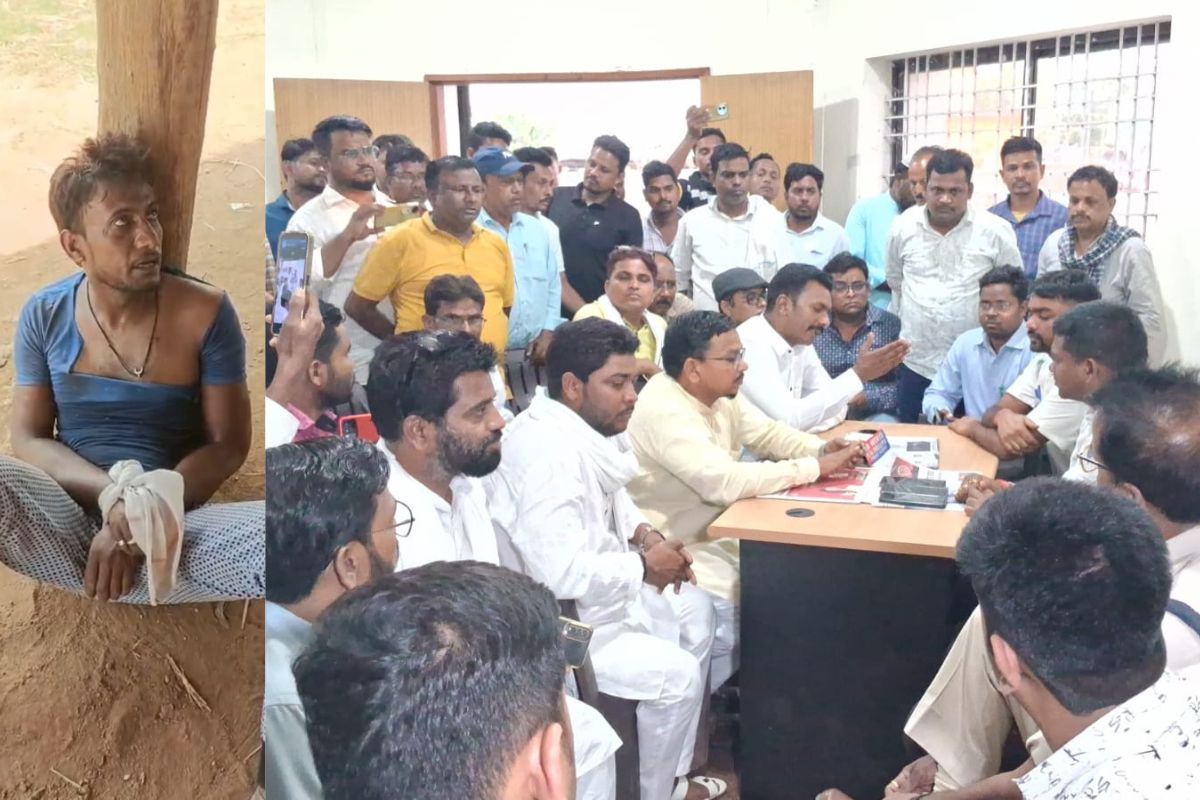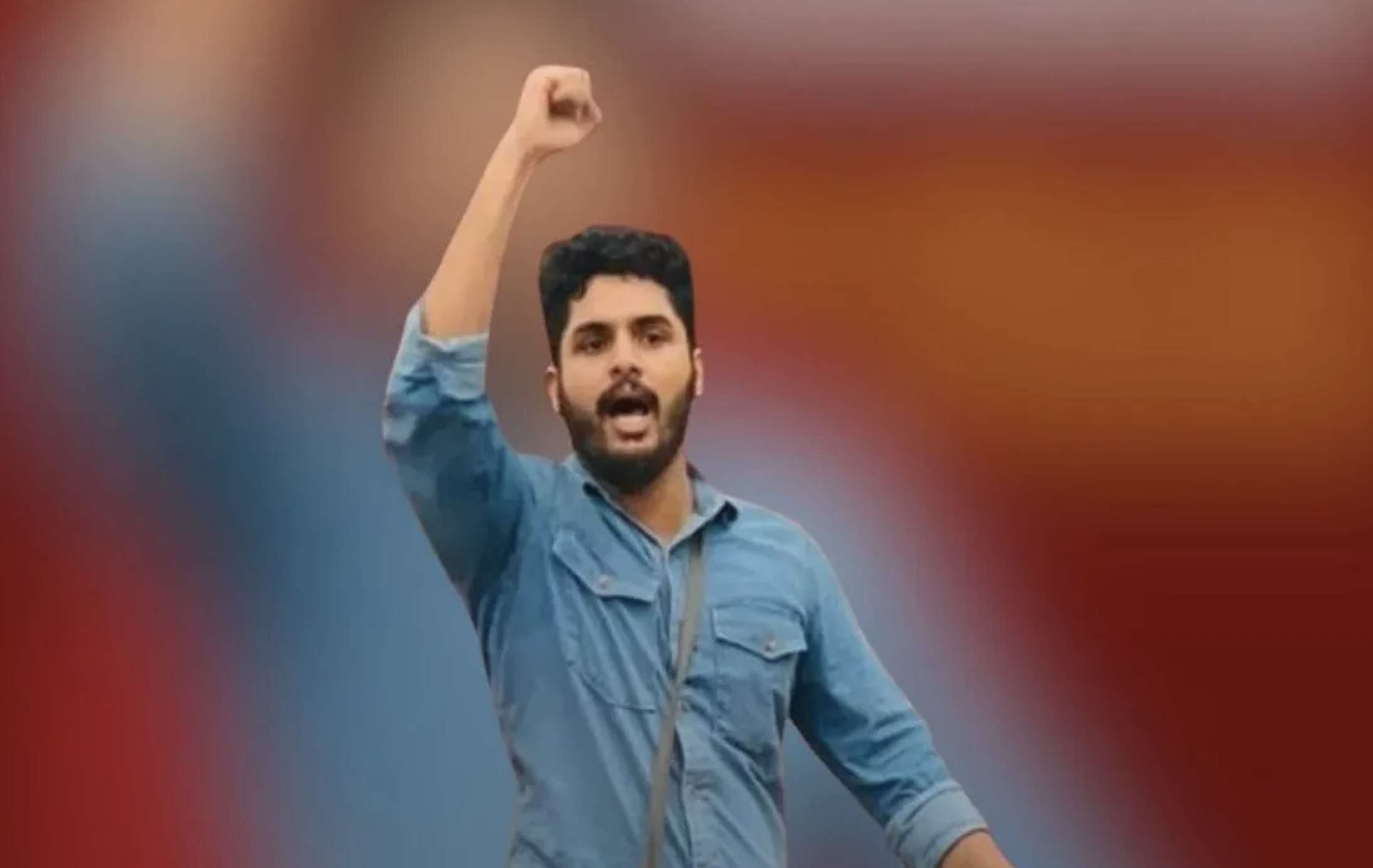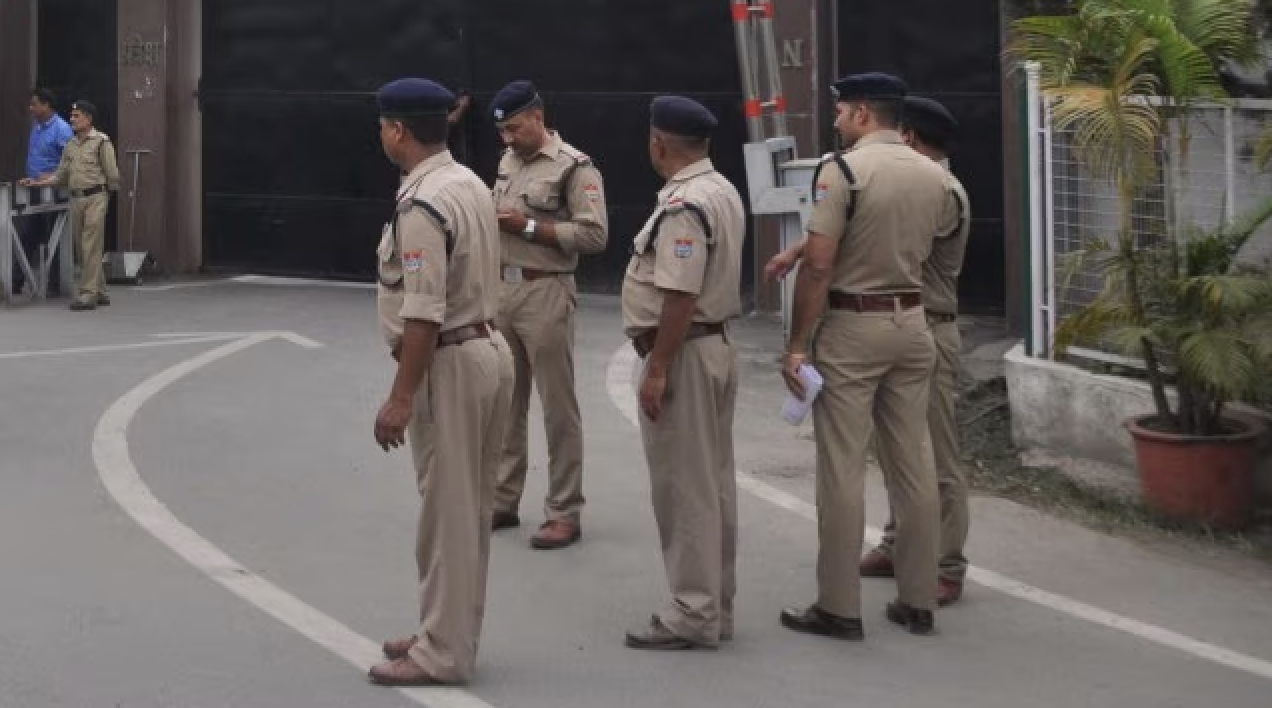
By AREEB UDDIN AHMED / Article14
Lucknow: An arrest brings humiliation and curtails freedom. It must not be made on mere allegation. The police must first investigate the allegation and magistrates must authorise detention with care, failing which both police and magistrate would be liable for punishment.
These were the guidelines issued by the Supreme Court of India in 2014 in Arnesh Kumar vs State of Bihar, a case where the Supreme Court imposed checks and balances on the power of police to arrest and held that an arrest should not be made for the sole reason that the offence is non-bailable and cognizable (meaning an arrest can be made without a warrant) and in cases where punishment is less than seven years, then no arrest should be made.
These orders came to be known as the Arnesh Kumar guidelines, applicable in crimes committed under the Indian Penal Code 1860, for which procedure for the police and the magistracy is prescribed in the Criminal Procedure Code (CrPC), 1973.
The Arnesh Kumar guidelines make one clear point: there should be no arrest in offences that describe a jail term of less than seven years. Yet, these guidelines have been violated by the police and magistrates in a number of recent cases, the most recent being the arrest of Mohammad Zubair, cofounder of fact-checking website Alt News and the repeated filing of cases to keep him in jail.
Zubair was arrested on 27 June 2022 by the Delhi police over a four-year-old tweet after a complaint filed by an anonymous Twitter account, remanded to first 24 hours and then four days in police custody by a magistrate and arrested again on 3 June by the Uttar Pradesh (UP) police for calling Hindu extremist Yati Narsinghanad and others—already booked for hate speech—“hate mongers”.
“That officers of the state should use such disgusting tactics against a citizen of our own country speaks volumes of their intent and mindset,” former Supreme Court Justice Madan Lokur wrote in The Wire on 9 July 2022.
Another magistrate in the western UP town of Sitapur remanded him to 14 days in judicial custody before the Supreme Court granted him five days bail in the UP case alone. Hours later, a third magistrate in the town of Lakhimpur-Kheri issued a warrant ordering him to appear on 11 July. The case was based on another complaint against Zubair for a tweet he issued on 16 May 2021, calling out fake news put out by Sudarshan News, a right-wing, pro-government channel.
With the district court 60 km away from the police station, it was not easy for Zubair’s colleagues to find local lawyers and sureties in Lakhimpur-Kheri. When this story was published, Zubair had been in custody for 12 days.
The offences invoked against Zubair were sections 295A (deliberate and malicious act intended to outrage religious feelings) and 153A (promoting enmity between different groups on grounds of religion, race, place of birth, residence. language, etc., and for acts prejudicial to maintenance of harmony), with the police providing bare justification for the lack of due process under the Arnesh Kumar guidelines.
“A mere oral submission or a simple written statement by the police that the accused is not answering most questions is not enough,” wrote Justice Lokur.
Yet, Zubair was arrested.
Zubair’s arrest, as the The Wire reported, was in the culmination of a years-long campaign by a network of anonymous and inauthentic accounts linked to Vikash Ahir, state president of the Hindu Yuva Vahini and co-convenor of the Bharatiya Janata Yuva Morcha in Gujarat. Both organisations are linked to India’s ruling Bharatiya Janata Party of Prime Minister Narendra Modi.
In similar fashion, Rohit Ranjan a Zee news anchor was also arrested early on 5 July in Noida, UP, by the Noida police—whisking him away from a Chhattisgarh police team that also tried to arrest him—for using a doctored video of Congress leader Rahul Gandhi. The police charged Ranjan, who had by then apologised, with sections 504 (intentional insult), 505 (criminal intimidation), 153A (promoting enmity between different groups on ground of religion, race, place of birth, etc.), 295A (deliberate and malicious acts, intended to outrage religious feelings of any class by insulting its religion or religious beliefs) and 120B (criminal conspiracy), offences punishable with a jail term under seven years.
But Ranjan was given bail by the local court in Ghaziabad and on 8 July the Supreme Court also granted interim bail and protection from arrest.
Frequent Violation Of Court Judgements
There have been a string of similar arrests and incarcerations, in contravention of not just the Arnesh Kumar guidelines but similar court judgements.
In May 2021, a 21-year-old pharmacy student, Nikhil Bhamre, was arrested over a tweet mocking Nationalist Congress Party chief Sharad Pawar and imprisoned from May 13 till June 12, 2021, charged with sections 294, 500, 507 of the IPC, read with section 66(a) of the Information Technology Act 2000, offences where the jail term is less than seven years.
“Nobody is named… and you (government) keep someone in prison for a month,” Justice S S Shinde, judge of Bombay High Court said while granting bail to the student. “How is this the basis of everything?”
In May, 2019 a woman was arrested for having shared a meme with a morphed image of West Bengal chief minister Mamta Banerjee’s face grafted on Hollywood actor Priyanka Chopra’s photo at a gala in the US. In May, 2022, a Marathi actor Ketaki Chitale was jailed for more than a month for allegedly sharing a post about Pawar, which said, in someone else’s words, that “hell is waiting” and “you hate Brahmins” and mocked his illness (he is a cancer survivor) and voice.
Both were charged under sections where the jail term was less than seven years.
The case of standup comic Munawar Faruqi is similar, arrested in January 2021 for allegedly hurting religious sentiments with no evidence and imprisoned for 37 days. When the Supreme Court in February, 2021 granted ad-interim bail to Faruqui, it laid emphasis on the fact that the procedure contained in section 41 and section 41A of the CrPC and the guidelines in Arnesh Kumar were not followed.
This section requires that arrest should be the last resort and he should have first he should have been served a notice under section 41A of the CrPC.
An examination of the Arnesh Kumar guidelines indicate how far police and magistrates have strayed from what the Supreme Court said in 2014.
Police, Magistrates Liable For Punitive Action
The Supreme Court in the Arnesh Kumar case held that “arrest brings humiliation, curtails freedom and casts scars forever. Lawmakers know it, and so also the police”.
“The need for caution in exercising the drastic power of arrest has been emphasised time and again by Courts but has not yielded desired result,” said the Supreme Court. “Power to arrest greatly contributes to its arrogance, and so also the failure of the Magistracy to check it.”
“Not only this, the power of arrest is one of the lucrative sources of police corruption,” said the Supreme Court. “The attitude to arrest first and then proceed with the rest is despicable. It has become a handy tool to police officers who lack sensitivity or act with oblique motives.”
Although the court was mainly dealing with arrests made related to section 498A of the IPC, dowry harassment, it said these directions would apply to cases where the punishment was less than seven years.
One of the directions stated that a magistrate authorising detention must do so only after studying the police report. Failure to comply with the Arnesh Kumar guidelines, said the court, would make police officers liable for departmental action, contempt of court before the jurisdictional high court. Similarly, a magistrate authorising detention without recording reasons would be liable for departmental action by the high court.
In a 2019 case, Sandeep Kumar vs The State, NCT Of Delhi (2019), where UP Police ‘illegally’ detained a 23-year-old boy for marrying a Muslim girl, also 23, the Delhi high court declared the detention illegal, awarded a compensation of Rs 50,000 (each) and asked the UP director general of police to apologise to the couple.
In another landmark case, DK Basu vs State of West Bengal (December, 1996), the Supreme Court issued directions to be followed in all arrests or detention until legal preventive measures were put into place. The court held that the police personnel carrying out the arrest and handling the interrogation should bear accurate, visible and clear identification, with designations.
“A person who has been arrested or detained and is being held in custody in a police station or interrogation centre or other lock-up, shall be entitled to have one friend or relative or other person known to him or having interest in his welfare being informed, as soon as practicable, that he has been arrested and is being detained at the particular place, unless the attesting witness of the memo of arrest is himself such a friend or a relative of the arrestee,” said the Supreme Court.
What Magistrates Must Ensure Before Allowing Detention
In the Arnesh Kumar Case, said the Supreme Court, a magistrate “has to be first satisfied that the arrest made is legal and in accordance with law and all the constitutional rights of the person arrested is satisfied”, if not the magistrate is “duty bound” not to authorise detention.
In Zubair’s case, he was arrested by the Delhi police after being called for questioning in another case, for which he was already granted protection by the Delhi High Court in September, 2020. The police ignored the procedure, which the Delhi court rejecting his bail application did not consider.
In other words, when an accused is produced before a magistrate, the police officer effecting the arrest is required to provide “the facts, the reasons and materials on the basis of which the police officer has reached [a] conclusion”.
On 28 June, after Zubair had been in custody for a day, a magistrate noted that his colleague who had granted a day’s custody to police did so because Zubair did not cooperate. That was a valid observation, said former Supreme Court Justice Lokur, but not a reason to deny bail.
“When did failure to cooperate become a ground for denying bail or ordering remand?” wrote Justice Lokur. “Even during the British Raj, non-cooperation was not a ground for denying bail granting remand, otherwise the Mahatma would have spent his whole life in jail.”
In the Arnesh Kumar Case, the court said that the “Magistrate before authorising detention will record its own satisfaction, may be in brief but the said satisfaction must reflect from its order”.
“It shall never be based upon the ipse dixit (a dogmatic and unproven statement) of the police officer, for example, in case the police officer considers the arrest necessary to prevent such person from committing any further offence or for proper investigation of the case or for preventing an accused from tampering with evidence or making inducement etc, the police officer shall furnish to the Magistrate the facts, the reasons and materials on the basis of which the police officer had reached its conclusion,” the Supreme court said.
Arrests Should Not Be Made On ‘Mere Allegation’
The Supreme Court in Arnesh Kumar also said that “no arrest can be made in a routine manner on a mere allegation of commission of an offence made against a person”.
“It would be prudent and wise for a police officer that no arrest is made without a reasonable satisfaction reached after some investigation as to the genuineness of the allegation,” the Supreme Court said.
Sections 41 and especially section 41A of the CrPC make clear the procedure to arrest and serve notice of appearance before the police.
Section 41: It states the circumstances under which a police officer can make an arrest without any warrant. If a person is accused of a cognizable offence then the arrest can be made, subject to the “satisfaction” of the officers.
Note: Section 41A of the CrPC allows a police officer to issue a notice to an accused to appear before the police when a complaint is filed against them. If the accused complies with the notice and cooperates, then the arrest is not required, unless the police officer believes otherwise.
The Supreme Court observed that if the provisions of section 41 were “scrupulously enforced”, the “wrong committed by the police officers intentionally or unwittingly would be reversed and the number of cases which come to the Court for grant of anticipatory bail will substantially reduce”.
“We would like to emphasise that the practice of mechanically reproducing in the case diary all or most of the reasons contained in Section 41 Cr.PC for effecting arrest be discouraged and discontinued,” said the Supreme Court. “Our endeavour in this judgement is to ensure that police officers do not arrest accused unnecessarily and Magistrates do not authorise detention casually and mechanically.”
Above All, The Rule Of Law
It is clear, as we said, that in many recent cases, the Supreme Court’s Arnesh Kumar’s guidelines are not followed. That is particularly evident when people are being booked and later arrested over tweets, social media posts and expressing dissent against the government.
While justifying the arrest of AltNews’ Zubair before the Supreme Court on 8 July, additional solicitor general S V Raju, appearing for the investigating officer in a first information report registered at Sitapur Police Station, said that offences against Zubair were made out.
“Bajrang Muni [who Zubair had called a ‘hate monger’] is a respected mahant…a religious leader in Sitapur with a large following,” said Raju. “When you call a religious leader hate-monger (sic), it raises problems. My learned friend says he has written to the police. That is wrong. He is tweeting it to the larger world. You have outraged the religious feelings of a large number of followers of Bajrangi Baba. Whether it is deliberate or not, is a matter for trial. Prima facie offence is made out.”
This logic goes against the observations made on November 28, 2021 by the Supreme Court while granting bail to television anchor Arnab Goswami, who had been arrested by the Maharashtra police in connection with a 2018 case in which he was alleged to have abetted the suicide of an architect and his mother. “Deprivation of liberty even for a single day,” said the Supreme Court, “is one day too many”.
Zubair, wrote former Justice Lokur, faces a “fearsome” scenario. “One city after another; one charge after another… Is UAPA [the anti-terrorism law] far behind? I fear that is the next step.”
This article first appeared in article-14.com






